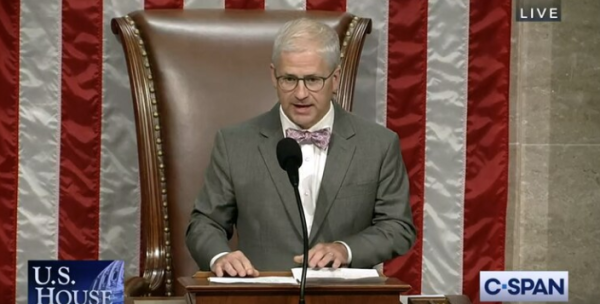
The major challenges of the maritime profession and labor issues occupied today’s meeting held by the Minister of Shipping and Island Policy Miltiadis Varvitsiotis with the administration of the Panhellenic Maritime Federation. The meeting took place at the offices of the Panhellenic Maritime Federation (PNO) in Piraeus.
In his introduction, the general secretary of the PNO, Manolis Tsikalakis, referred to all the claims and actions of the PNO, which should be, if nothing else, the minimum recognition of the State in the daily struggle that seafarers wage to keep maritime connections alive and safe of the country, both nationally and internationally.
He referred to the attraction of young people to the maritime profession, while at the same time he emphasized that the Federation’s unanimous position is the non-application of Regulation 3577/1992 to maritime cabotage in the name of “artificial lack of crews”.
At the same time, he put to the new minister all the fair and mature requests of the Federation, such as the substantial upgrading of the Public Maritime Education and Retraining, as well as the Schools of Lifesaving and Fire Fighting Equipment, while special reference was made to the need to upgrade the administrative services related to Maritime Labor, such as the Directorate of Maritime Records, whose operating framework should finally respond to the daily needs of seafarers with an emphasis on the unemployed.
At the same time, the need to increase the organic compositions was emphasized as of key importance so that they meet the real needs of the ships and ensure the safety as a whole that should distinguish shipping and especially passenger shipping.
At the meeting, the need to sign Collective Labor Agreements in all categories of ships was also raised, as well as their observance, as well as the maritime legislation, through the controls of the services of the Ministry of Shipping and the existence of a system of imposing fines for the violations of they will be a real deterrent to offenders.
In addition, reference was made to the sector’s permanent and perennial requests, such as tax and social security.
The members of the Administration of our Federation were also present at the meeting, who reported to the new minister the special problems of the branches they represent.
Latest News

Airbnb: Greece’s Short-Term Rentals Dip in March Amid Easter Shift
Data from analytics firm AirDNA shows that average occupancy for short-term rentals dropped to 45% in March, down from 49% the same month last year.

Easter Week in Greece: Holy Friday in Orthodoxy Today
At the Vespers service on Friday evening the image of Christ is removed from the Cross and wrapped in a white cloth

Meloni and Trump Meet in Washington, Vow to Strengthen Western Ties
“I am 100% sure there will be no problems reaching a deal on tariffs with the EU—none whatsoever,” Trump stressed.

ECB Cuts Interest Rates by 25 Basis Points in Expected Move
The ECB’s Governing Council opted to lower the deposit facility rate—the benchmark for signaling monetary policy direction—citing an updated assessment of inflation prospects, the dynamics of underlying inflation, and the strength of monetary policy transmission.

Current Account Deficit Fell by €573.2ml Feb. 2025: BoG
The improvement of Greece’s current account was mainly attributed to a more robust balance of goods and, to a lesser extent, an improved primary income account

Hellenic Food Authority Issues Food Safety Tips for Easter
Food safety tips on how to make sure your lamb has been properly inspected and your eggs stay fresh.

Greek Kiwifruit Exports Smash 200,000-Ton Mark, Setting New Record
According to data by the Association of Greek Fruit, Vegetable and Juice Exporters, Incofruit Hellas, between September 1, 2024, and April 17, 2025, kiwifruit exports increased by 14.2%.

Easter Tourism Boom: Greece Sees 18.3% Surge in Hotel Bookings
Among foreign markets, Israel has emerged as the biggest growth driver, with hotel bookings more than doubling—up 178.5% year-on-year.

Greece to Launch Fast-Track Tender for Offshore Hydrocarbon Exploration
Last week, Papastavrou signed the acceptance of interest for the two Cretan blocks, while similar decisions regarding the two Ionian Sea blocks were signed by his predecessor

American-Hellenic Chamber of Commerce to Open Washington D.C. Branch
AmCham's new office aims aims to deepen U.S.-Greece economic ties and promote investment and innovation between the two countries







![Πλημμύρες: Σημειώθηκαν σε επίπεδα ρεκόρ στην Ευρώπη το 2024 [γράφημα]](https://www.ot.gr/wp-content/uploads/2025/04/FLOOD_HUNGRY-90x90.jpg)




![Airbnb: Πτωτικά κινήθηκε η ζήτηση τον Μάρτιο – Τι δείχνουν τα στοιχεία [γράφημα]](https://www.ot.gr/wp-content/uploads/2024/07/airbnb-gba8e58468_1280-1-90x90.jpg)

























![Airbnb: Πτωτικά κινήθηκε η ζήτηση τον Μάρτιο – Τι δείχνουν τα στοιχεία [γράφημα]](https://www.ot.gr/wp-content/uploads/2024/07/airbnb-gba8e58468_1280-1-600x500.jpg)


 Αριθμός Πιστοποίησης
Αριθμός Πιστοποίησης